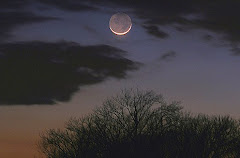In my view, his research is providing space for scientists to explore the healing properties of sound energy in a tangible way.
According to Sacks, "music therapy" is an exclusively human phenomenon. Sacks considers music to be a "crucial" treatment for people with Parkinson and Alzheimer’s disease, and those recovering from strokes. It can also help patients resist amnesia. To support this theory, he discovered that music uses parts of the brain that govern language, memory, and emotions—language is normally a left brain function but parts of the right brain are also used when music is involved--something that is not normally possible. For Sacks' Alzheimers patients—their music memory kept them grounded even when they lost all other memory capacity. Those worse Amnesia cases can still sing and conduct an orchestra. According to Sacks, the only fundamental requirements are that the music used has to have rhythm and a beat.
Sacks's research also suggests that Music triggers memories not normally accessible to schizophrenics and Parkinson’s patients. He remarked that different parts of the brain are used for listening and different parts for playing music back. Some of his patients responded to the music in such a way that the “music was playing" them, leading Sacks to believe, “Music is a direct, unmediated connection to feeling and real feeling.”
Sacks posits that music can appear in dreams and is contextual although it is not always beneficial. He used the example of how we have "all been infected by a jingle, a hook or an earworm." In this way, themes and phrases have the propensity to go around and around in the head in a way that is not always constructive, Sacks believes.
While all of this information created a lot to ponder, the most interesting and perhaps shamanically oriented part of Sacks' lecture was when he went into the topic of what he called, "Musical Hallucinations." Sacks said that music can follow you around while you are conscious to the fact that there may be no external source. He says that this is a common outcome for the hearing impaired and children. He doesn't know what creates them and dismissed them as something that "some people just have." He also noted that those who experience seizures hear music.
It strikes me that this is evidence of a residual sound energy that could be caught in a person's field. Thinking of the times I have felt music hallucinations, I wonder if these signatures provide clues about past experiences or if they might be an audio manifestation of journeying. The experience of a hallucination, by definition, is in some way related to an altered state. Perhaps sound and vibration is not only a way to induce an altered state, but it could be another dimension drawing in information from the spirit world.
While he is deeply involved in the practice, Sacks thinks that the way music works is still a deep mystery and he suspects it will remain one. Sacks asserts that almost everyone is musical and that the therapeutic powers of music are just being investigated now. He strongly believes that music healing will be recognized more in the future.







No comments:
Post a Comment